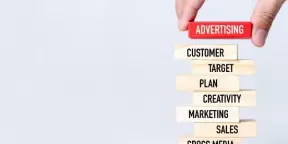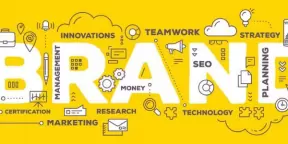Marketing
Every business needs marketing in some shape or form to be successful. Learn why marketing is vitally important, the different types of marketing and what makes an effective marketing strategy.
Continue Reading Continue Reading6.02K MEMBERS
Join group

Develop effective offline marketing strategies to engage your audience

Amplify your presence and increase awareness with smart PR strategies.

Win new customers for your business with the help of sales professionals.

Increase sales or leads through SEO, social media, content marketing, email, ads, PR and online marketing.

Market face-to-face at trade shows, seminars, conferences and networking events.

Implement creative and strategic branding activities that align with your brand strategy

Build a campaign to mail your promotional materials direct to customers and prospects.

Create a robust marketing strategy that supports your business goals

Optimise your website to have the highest chance of outranking your top competitors.

Devise a robust marketing strategy to fuell your business growth.

Use visual content such as videos, infographics and ebooks to amplify your content marketing campaigns.

Create or customise business signage, banners, posters and other promotional materials.

Rope in customer service professionals to manage your customer interactions.

Use social media for branding, building a fanbase and acquiring sales and leads.

Find talented sales professionals to acquire and retain customers

Design and manage all types of ad campaigns covering print, outdoor or digital ads.

Invest in a customer retention strategy and get sales professionals to execute your plan.

Create content to increase brand awareness, educate your customers or get sales and leads.

Create or customise brochures, pamphlets, flyers and other printed handouts to market your business.

Create promotional marketing materials to use across your business

Successfully attract and convert new prospects and get them interested in your business.

Identify market gaps, target markets and key differentiators that will make your brand stand out from the pack.

Create engaging content and visual media that is user and SEO-friendly

Apply SEO in your content marketing to increase hits and shares and improve search engine rankings.

Steve Osborne, director at Stephen Roger Osborne
A good marketer for your business is:
I'm being deliberately vague. The real answer depends ... expand
Nathan, if you describe the problem you're having with marketing your business, we might be able to describe what makes a good marketer for it. Otherwise, you run the risk of getting very generic answers. Like these:
A good marketer for your business is:
- someone who understands the target market and its issues
- someone who understands the business vision
- someone who understands marketing strategy
- someone who understands marketing budgets
I'm being deliberately vague. The real answer depends on your business, your goals, your budget. If you can be more specific, I and others will do our best to assist.
If you have joined a rewards program as a business, what made you join and why?
If you were to join, what sort of value would be compelling enough to get you over the line?
608 views

Jef Lippiatt, Owner at Startup Chucktown
For me, low barrier to entry or ease of joining is important. Make using the program invisible or efficient for me to use regularly. Ensure that I'm getting some value out of it or why bother being part of the program. ... expand
I'm in several rewards programs in different markets
- My Printing Vendor - I"m a Gold Level VIP based on amount spent within a rolling 12 month period. Previously I was a Silver Level and I'm a ways out from being a Platinum. Benefits? I get automatically discounted prices on all print materials (tiered based on my current VIP level). The program also gives me free file reviews and other things. Why do I like it? It saves me money on things I'm already buying and I didn't have to enroll in anything (very low barrier to entry).
- Staples - Getting discounts on office supplies. Signing up only took a minute and it was free. I can get credits for bringing in old print cartridges and buying multiples (5 to 10 of same SKU). I haven't really saved a lot, but again fairly easy to get involved.
For me, low barrier to entry or ease of joining is important. Make using the program invisible or efficient for me to use regularly. Ensure that I'm getting some value out of it or why bother being part of the program.

Eloah Paes Ramalho, Community Manager at SavvySME
so that it's credible? For example: someone who's ... expand
Each of these points would make an article on their own, @Eric Sutfin ! Brilliant work! The last comment you made about a bigger vision is something that has been in the forefront of my mind lately! Do you suggest growing this vision over time so that it's credible? For example: someone who's just starting and is impacting say 50 people creating a vision for the whole world or 2 billion people x creating a vision for their province/country and then expanding as the business expands? What's your take on this?
@Yee Trinh , I know you are all about building vision! Keen to hear your thoughts too on this piece.
@Steve Gray , the hospitality industry might not be your niche, and I know you often share on Customer Service and Experiences. What are the 3 points in Eric's article you'd call special attention to for any industry?!
Who can do marketing for property services and contract cleaning business?
Does anyone know who can help me?
1.68K views

Jane Jones, Marketing Consultant at Global Compliance Institute
Thanks @John Eustace and @Sarjit soni - @Emma Egel - did you reach out for assistance? You could also consider hiring a marketing expert.

Steve Osborne, director at Stephen Roger Osborne
Glen, so is branding a sub-section of marketing or vice versa? And is active promotion simply a form of advertising?
What is inbound marketing and how can it help your business?
What is exactly inbound marketing and how can it help bolster and grow your small business?
924 views

Narine Poghosyan, Manager at OneTouch Ventures
James Artur Inbound marketing is a newer mindset of marketing that focuses on creating content people need, when they need it, rather than just pushing information at them. ... Strategically sharing your remarkable content in blogs, emails and social media helps attract the right visitors and convert them into leads.
It will help you reach new markets and audiences.
- Top influencers in Marketing
 Tom Valcanis
Tom ValcanisCopywriter at I Sell Words
 Alicia Menkveld
Alicia MenkveldDirector at Alicia Menkveld International
 Andrew Snell
Andrew SnellDirector at Coaster Group
-
Featured Offer
This is a Premium Business feature
Marketing
Whether you are a newly established startup or you’re an established business with a loyal customer base, staying up to date with marketing is vital.
Marketing encompasses so many things and overlaps with other areas such as advertising and sales.
At first glance, it can feel a little overwhelming trying to understand what’s what and how it applies to your business.
So, we’ve broken it all down into bite size chunks so you can understand the fundamentals of marketing.
What is marketing?
In the most simple sense, marketing is the process of promoting your business and driving sales and other profitable customer actions.
This is achieved with a range of strategies and activities such as direct marketing, online marketing, social media and search engine marketing.
Marketing is critical for all areas of a business, from sales and product development to HR and logistics.
What is the purpose of marketing?
In case you’re wondering, “Do all businesses need marketing?” The answer is a simple yes.
There’s only one way your business can survive, and that’s if:
- people know about your business;
- people what products or services you offer;
- and why they should choose you instead of your competitors.
The bottom line of marketing is to create strategic messages and distribute them across relevant challenges to attract consumers to your brand.
Regardless of how unique your business offering is, many businesses would cease to exist without marketing because they would fail to reach the target audience and generate sales.
What are the different types of marketing?
There are many different types of marketing. Some are age-old strategies that have survived the digital evolution and others are much more recent.
Here is a (non-exhaustive) list of some of the most popular strategies:
- Word of mouth advertising
- Cause marketing
- Paid advertising
- B2B (business to business) marketing
- B2C (business to customer) marketing
- Outbound marketing
- Inbound marketing
- Digital marketing
- Email marketing
- Affiliate marketing
- Search engine optimisation (SEO)
- Search engine marketing (SEM)
- Social media marketing
- Influencer marketing
- Content marketing
- Guerilla marketing
- Video marketing
- Native marketing
- Relationship marketing
As you can see, there’s a lot! That’s why it’s imperative to get to know who your target audience is and where they’re spending their time so you can effectively reach them.
What is the difference between sales and marketing?
While sales and marketing teams work together to achieve the same business goals, they do work in different areas.
Marketing works on how best to reach and engage a target audience to promote, inform and educate about a particular product or service, while advertising or sales teams close leads generated by marketing and implement advertising strategies to increase revenue.
What is the difference between traditional and digital marketing?
Digital marketing is a subset of marketing and simply refers to marketing used on digital and online mediums.
In a sense, digital marketing is simply marketing, but in today’s world.
It’s not a case of whether digital or traditional marketing is ‘better’, but rather which type of marketing gives you the best ROI in reaching your target customers.
Many businesses use a combination of traditional and digital/online channels.
What are the 4Ps of marketing?
The 4Ps of marketing is one of the most widely-known marketing concepts that underpins the four key elements of any marketing strategy:
- Product
- Price
- Place
- Promotion
Businesses use this model when planning a new product or service launch, assessesing an existing offer or how the business can have a greater impact within the target market.

What is a marketing strategy?
A marketing strategy refers to the what, why and how.
It’s your roadmap detailing how your marketing efforts will contribute to your overall business goals including your business’ key brand messaging, unique value propositions and your target audience demographics
A marketing strategy is usually long standing and addresses the bigger picture of where you want your business to be in the future. It is used to nform your marketing plan, i.e. the type of campaigns and tactics you will use to achieve the bigger picture.
Look at every marketing campaign and activity you do as smaller pieces of a large marketing pie (the strategy).
Half the battle is laying down a solid marketing strategy from the get go.
How do I create a marketing strategy?
Here are some top tips to help you devise a good marketing strategy:
- Understand your value propositions
- Research your competitors
- Get to know your target audience
- Create buyer personas
- Determine goals and objectives
- Choose your channels
What are the best B2B marketing strategies and tactics?
If your target audience is other businesses, there are some key differences in business to business (B2B) marketing.
Did you know that 97% of marketers use social media to reach B2B clients and customers,
Video content is also on the rise, with 73% of B2B marketing saying that video had a positive impact on their ROI (Review 42, 2020)
That being said, here are some ideas to help you create an effective marketing strategy:
- Have a great website: Good web design is key and can impact your search rankings. It’s one thing increasing your online visibility and another thing creating a user-friendly and easy to navigate site that will retain users once they land on a page.
- Amp up your content marketing: Content marketing is an umbrella for blogs, social, newsletters, infographics, FAQs and more. 75% of consumers say that a brand’s content has a considerable impact on their buying decision (BCG, 2017), So, start creating a range of content that demonstrates thought leadership and authority within your industry.
- Get active on social: 50% of B2B customers say they are more likely to purchase from a business they interact with on LinkedIn (Review 42, 2020). You 100% need to be on LinkedIn and assess other social platforms that will help you connect with and engage your audience.
- Video marketing: Video is one of the easiest ways to educate, inspire and inform your audience and the content we consume in video is significantly more retainable than other channels.
- Search engine optimisation (SEO): Almost every search (for everything) begins on Google. Consumers don’t engage as much with paid ads and generally tend to trust organic rankings much more.
- Event/network marketing: Create events to promote your business with real-time and face-to-face engagement either online or offline. You could also reach out to influencers to participate in your event or your business could be a sponsor at an event.

What are effective B2C marketing strategies?
If your target audience is individual people, your business to customer (B2C) marketing will need to encapsulate the personal element.
Here are some B2C marketing ideas:
- SEO: Optimise your website to capture your users’ intent and search queries
- Optimise for mobile: We live in a mobile world and consumers are always on the go. It’s important to have a mobile friendly website to reach your customers efficiently and effectively.
- Retargeting: If users on your site leave without purchasing the items in their basket, a digital reminder will hopefully encourage them to return and checkout.
- Get social: Get active on your social channels and start sharing content and running campaigns that will inspire your audience and give them more reason to engage with your brand.
- Share your brand’s personality: Define who your brand is and how it would communicate if it was a person. Allow all of your communication to express who you are and what makes you different from your competitors. Transcend the transactional discourse between business and customer.
\What are marketing metrics?
Like anything you do in your business, it’s important to be able to track the effectiveness of your marketing strategies and assess their performance.
There are a number of key metrics, also known as performance indicators (KPIs) used in marketing:
Sales revenue: Income generated from the sales of goods or services.
- Cost per lead (CPL): An online advertising metric where payment is based on the number qualifying leads generated by a marketing campaign.
- Traffic-to-lead ratio: The number of visits to a website that result in qualified leads.
- Lead-to-customer ratio: The number of qualified leads that result in sales.
- Organic traffic: The number of people that visit your website as a result of organic (unpaid) search results.
- Conversion rates: The percentage of users who take an action on your site, e.g. request a callback or purchase something.
- Click through rate (CTR): The percentage of people who see a specific link and click on it, e.g a blog, advert or email.
- Return on investment (ROI): A ratio used to measure the total net profit made after the total cost of an investment.
- Cost per action (CPA): The total amount you pay to get a conversion.
What are the best marketing ideas for small businesses?
The best marketing ideas for a small business are those that will continue to have a big impact in the long run.
Small businesses usually can't compete with big businesses in terms of budget, so your marketing strategy should be strategic and resourceful.
- Highlight your value propositions: Whether in your marketing plans, ad campaigns or everyday interactions, emphasise the unique value propositions of your small business, e.g. your dedication to customer care. This goes a long way towards building a profitable brand.
- Word-of-mouth advertising: Word-of-mouth for a small business is extremely powerful and requires the least amount of resources and money. Some examples are encouraging user-generated content, getting positive reviews out there and implementing referral programs.
- Inbound marketing: The premise of inbound marketing is to help your target customers solve a problem in areas that are relevant to your product or service. Invest in content such as instructional YouTube videos, social media posts and helpful infographics and articles.
- Use social influencers: Social media influencers on Facebook, Instagram, LinkedIn, Twitter and Snapchat can help your business gain traction. Find micro influencers with loyal fans that align with your target audience demographics.
- Utilise face-to-face marketing: Events, pop-ups and speaking engagement are great ways to talk to your target market and promote your business. They are low-cost and effective because of the personal touch you get with your audience.
- Do smart partnerships: Leverage bigger brands or complementary businesses through smart partnerships and affiliate marketing. Partnerships are a great way to market your business while gaining new customers quickly.
- Invest in SEO: SEO is a great way to market your brand on search engines, where consumers are flocking to. It might be best to hire an SEO expert or an agency as SEO is quite technical and there can be a bit of a learning curve if you do it yourself.
- Social responsibilities: Many consumers love businesses who give back to the community, environment or a social cause dear to their hearts. This is a great way to do good while marketing your brand.
- Focus on clever advertising: Plough money on channels where you are getting the highest ROI and ignore the rest. Other forms of advertising can be in sponsorships, outdoor advertising such as murals and vehicles.
As you can probably see, marketing is vast and if you are struggling with where to start, don’t worry.
While it’s absolutely possible to do your own marketing, many business owners decide to outsource some or all of their marketing to an agency.
Learn more about how marketing agencies can help you gain traction and drive your business forward.
FAQ
Why should I hire a marketing agency versus in-house marketers?
The value to be gained from hiring a marketing agency is immense. Here are some of the main reasons why:
- Access to a collective of marketing experts: When you put a load of marketing brains together great things can happen. They often have teams dedicated to particular areas such as SEO and paid media.
- Gain new perspectives: It’s easy for the cog to get stuck in the wheel when the same people keep turning it. Reaching out to an agency will give you some fresh ideas and maybe even totally new perspectives on how to market your business.
- Free up your time: You might have time to do some marketing, but do you have the resources to pump as much time as you’d like to get the results you’re looking for?
- Scale-up: If you really want to scale your business and are transitioning into your next stage of growth, an agency has the expertise to take you there.
- Stay current: The world of marketing is constantly changing and evolving. What’s current today might not be as effective a few months down the line. Marketing agencies are in the know about industry news, trends and best practices.
- Meet deadlines: Marketing agencies are used to working to tight deadlines. If you need something done last minute, chances are they’ll go above and beyond to help you.
- Save payroll costs: Hiring an agency can be considerably cheaper than hiring an in-house marketer, especially if you hire on a project-basis.
How do marketing agencies work?
When you embark on your journey with a marketing agency, the process will go a little something like this:
- Introduction: They will get to know you, your business and what it is you’re looking to achieve.
- Consultation: They will consult with you to devise a strategy and outline the key objectives of your marketing plan.
- Feedback: They will give feedback to you and ask you for any additional ideas or changes you’d like to be made. Once you’re happy, you can sign off your agreement.
- Timelines and deadlines: The agency will set a timeframe for key deliverables.
- Rollout: They will begin rolling out campaigns and other marketing activities.
- Analysis: They will track, measure and iterate.













